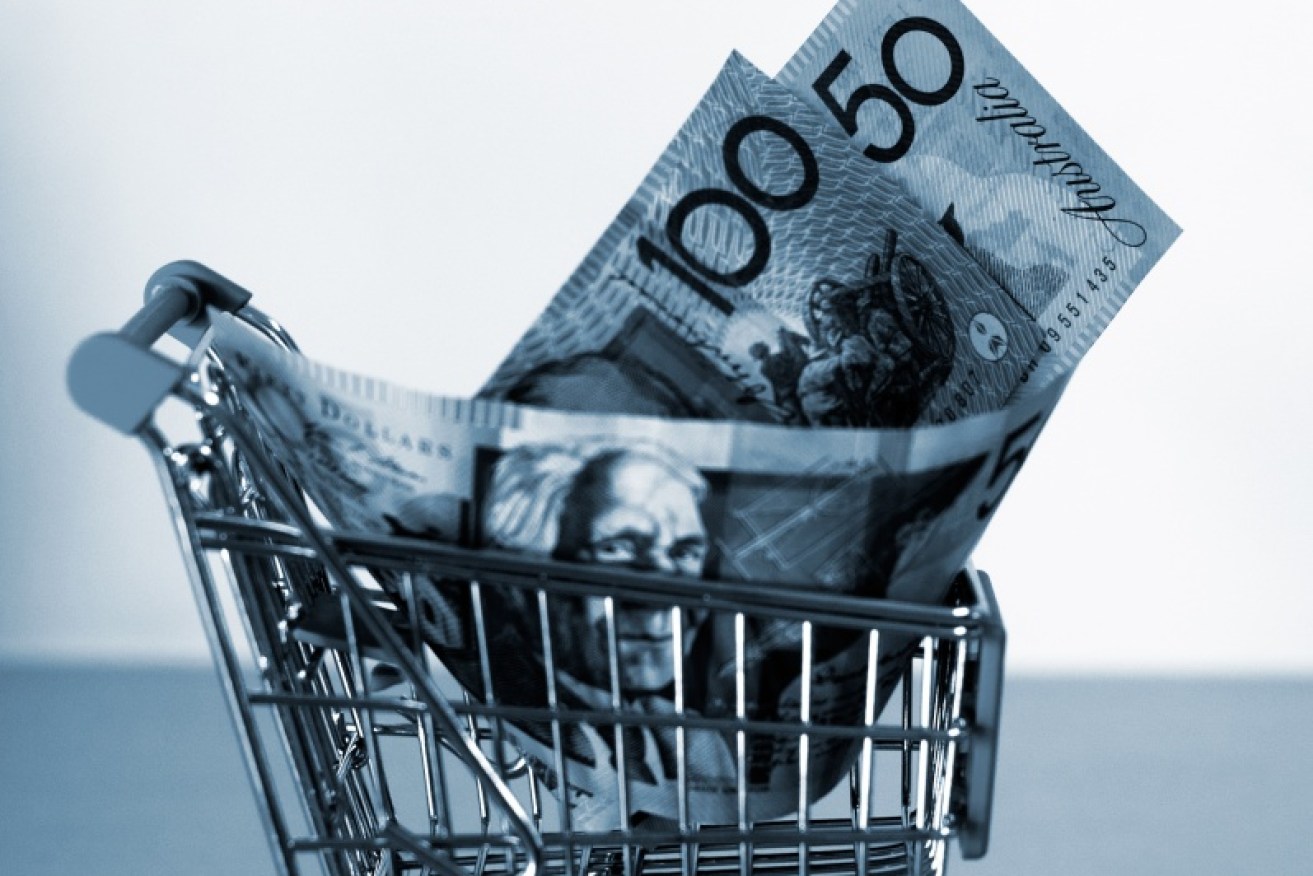Stripping workers of spending power could spark a recession

The Australian economy depends on the spending of wage earners. Photo: Getty
Perhaps the biggest threat facing the Australian economy is that wage earners, stripped of their share of national income, devoid of savings and burdened with debt, will plunge the nation into recession by drawing their pursestrings.
The latest GDP figures, published last week, showed that the share of national income going to wage earners fell in the March quarter to 51.5 per cent, the lowest level since 2009.
The result was perilously close to a 53-year low. Before 2009, the wage share of national income hadn’t been so small since it hit 51.3 per cent in 1964.
What this means is that the fruits of the economy are flowing away from Australians who work for a living – those who prop up economic growth with their spending – and towards the rich minority who tend to derive their income from corporate profits, rents and interest payments on financial investments.
At the same time as labour’s share falls, the share of national income going to profits has risen to a five-year high of 27.5 per cent.
The GDP figures tell us this because gross domestic product is calculated by totalling the market value of all finished goods and services produced within Australia in a specific time period – in this case, January to March 2017.
Because the market value of goods and services is earned by workers and companies as income, GDP is a rough measure of national income. And wage earners are getting a shrinking slice of that pie.
The OECD, IMF, European Commission and International Labor Organization have all observed this trend across the developed world, so it’s not unique to Australia.
What is unique is the severity of the problem. The 51.5 per cent of GDP going to Australian wage earners is low by international standards. For example, the wage share is around 60 per cent in the United Kingdom and 55 per cent in the US.
Experts have suggested several causes. The surplus of unemployed and underemployed workers in the labour market means bosses don’t have to offer more money to attract and retain employees. The rise of automation. The death of full-time, permanent jobs. The declining power of unions. The shift from manufacturing to services. Increased globalisation. The relative importance of Australia’s mining industry, which employs large amounts of capital and few workers.
Whatever the cause, Australian wages are growing at only 1.9 per cent a year, the lowest rate on record, according to ABS data going back nearly two decades.
Redistributing national income away from labour and towards profit is a big concern because the Australian economy is heavily dependent on the spending of workers.
Spending is propping up growth. Household consumption grew by 0.5 per cent in the March quarter, while overall GDP grew by only 0.3 per cent.
But Australians are racking up debt and cutting back savings to do it. The fear is that it will all come crashing down.
Household consumption ($241.6 billion) accounted for 57 per cent of Australia’s GDP ($424 billion) in the March quarter.
A huge chunk was discretionary spending. We spent just over 15 per cent of GDP on eating out, tobacco, alcohol, household furnishings, recreation, clothing and shoes.
However, our fastest growing areas of spending were on non-discretionary items, such as electricity, gas and other fuel (+2.9 per cent) and transport services (+1.8 per cent).
That spending growth was at the expense of savings. The household savings ratio dropped to 4.7 per cent in the March quarter, the lowest level since the financial crisis of 2008 and half the rate it was in the March quarter of 2013.
It also appears to be fuelled by debt. Australian household debt has risen to a record 212 per cent of income, according to the latest data from the OECD, putting us fourth behind Norway, the Netherlands and Denmark.
Unless they get a bigger share of national income, Australia’s debt-burdened and savings-poor workers may stop spending.
If they do, a recession looms.








